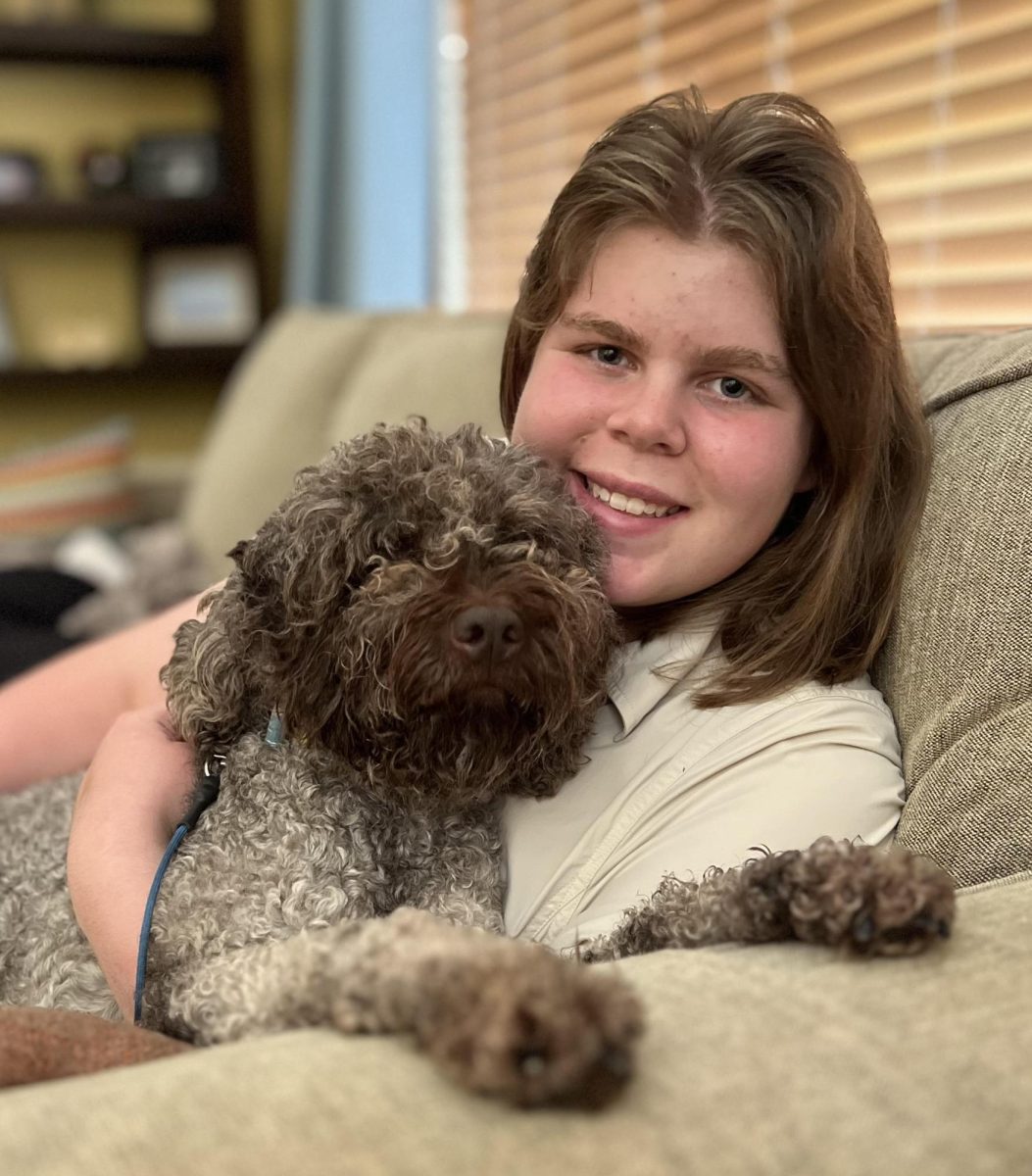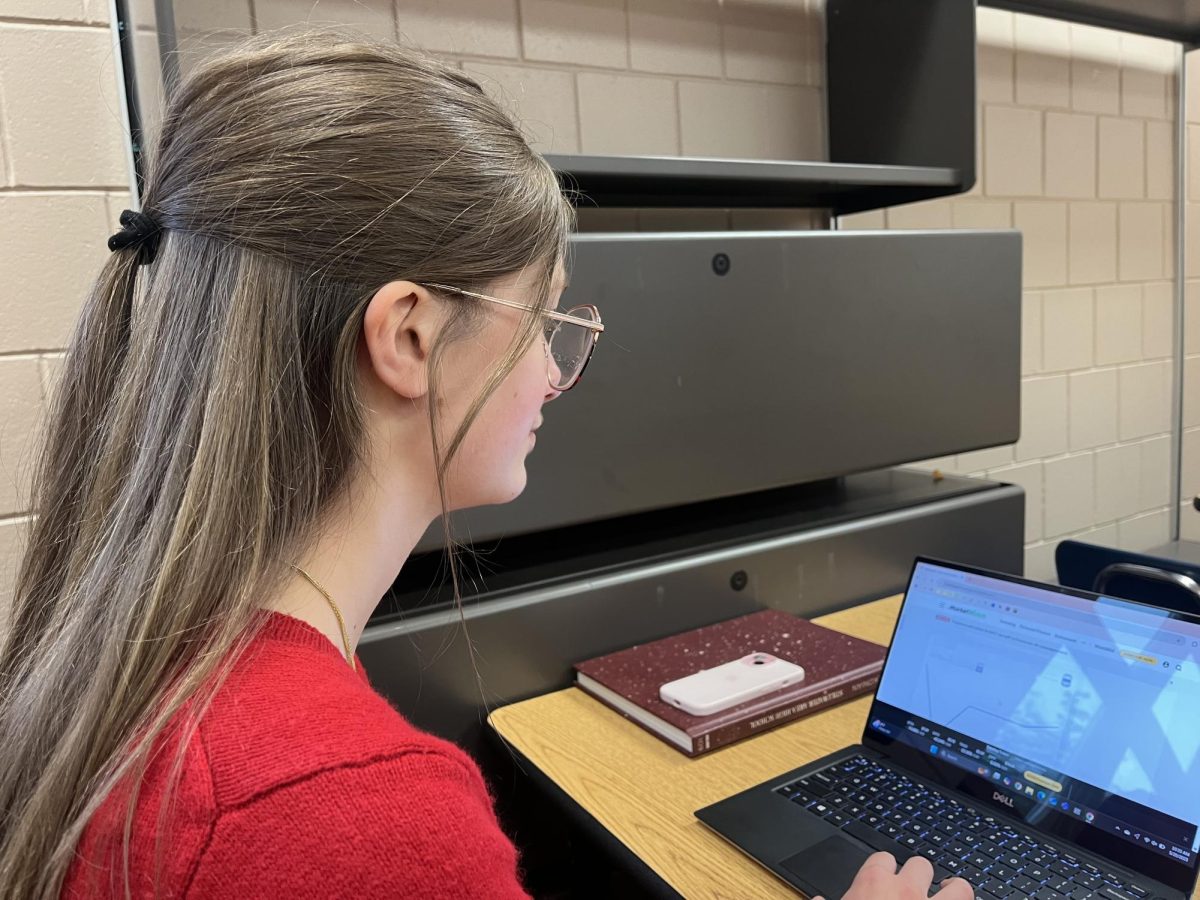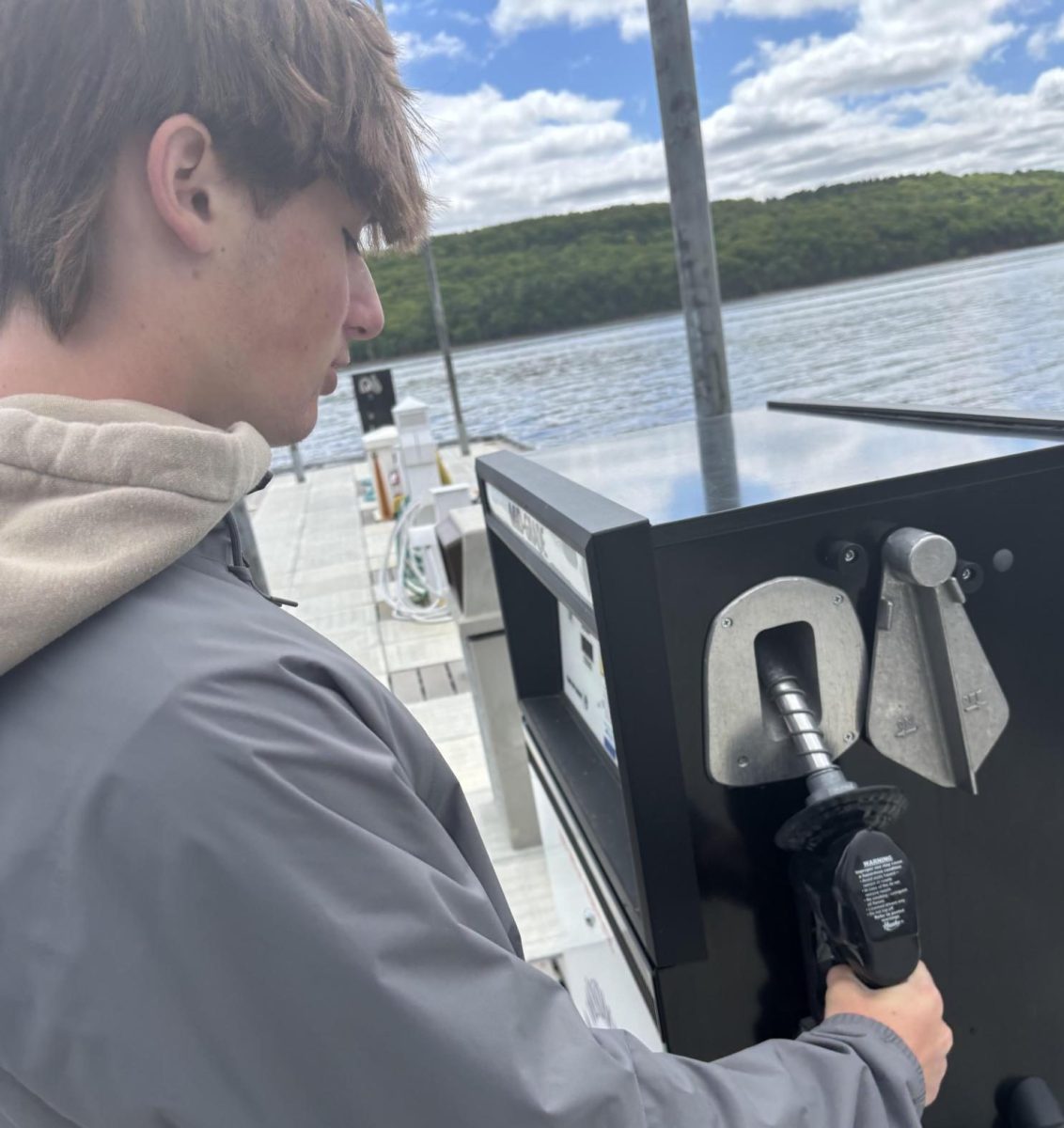Senior Chloe Voelker has a service dog name Wade who attends school with her to provide medical support. Previously, Voelker struggles with anxiety and Wade is tasked-trained to minimize her disability.
Wade is a 3-year-old Italian Water dog. Unlike most pets, Wade is trained specifically for his role as an autism assistance service dog. Service is not a pet, he is considered a medical device. He is calm and his soothing presence helps Voelker feel more at ease, providing her with the comfort and stability needed to navigate life’s challenges and ups and downs of her disability.
“He helps with deep pressure therapy, creates physical boundaries and helps with nightmares,” Voelker described about the profound role Wade plays in her life. “Wade is always my best friend, and I love him.”
Wade is vital to Voelker’s health. Service dogs help their owners through tasks that they have learned to minimize their handler’s disability.
“Before I had him, I didn’t go out in public, didn’t go shopping and I struggled in school. He allowed me to gain confidence to actually interact with the rest of the world,” Voelker explained.
Voelker has been in countless treatment programs, but the most beneficial has been getting Wade.
Assistant Principal Matt Kraft said Chloe “has shown her high levels of perseverance and resilience by pushing through some barriers.”
Kraft explained that he has known Chloe since her freshman year, and he thought it was great that Voelker had Wade. He explained that she is a great, strong person for having Wade along her side and utilizing her helpful resources.
“I’ve known Chloe since she was a freshman, and you know, she was shown a high level of perseverance and resilience by pushing through some barriers. And her utilizing a service animal for [medical] support. I think it’s really awesome. It’s a good reminder for everyone to know what resources we can all use out there, and we shouldn’t be anxious about it,” Kraft said.
Some students or staff can interact with Wade. Wade is not usually pet by strangers or her family when he working, but when he is not working he “gets all the love in the world”.
Counselor Dan Ralston explained that he gets to see Wade most days. “I get to see Wade every day. I treat him like he’s working, and he interacts a little bit. I ask how’s he feeling, or how’s he doing, but I see him outside of he school day when he’s not working,” Ralston added.
While there are many positives to having a service dog, there are some challenges as well. An owner with a service animal may be told they arerestricted in certain areas due to pet rules, however that is illegal and owners may have to explain the Americans with Disability Act to make others understand. For example, Voelker explained certain restaurants that do not allow animals and their lack of knowledge about ADA laws. Once Voekler explains Wade is a service dog, she is allowed to bring him along.
However, despite any challenges, Voelker has found having Wade by her side allows her to push through daily struggles and challenges with greater ease.
















